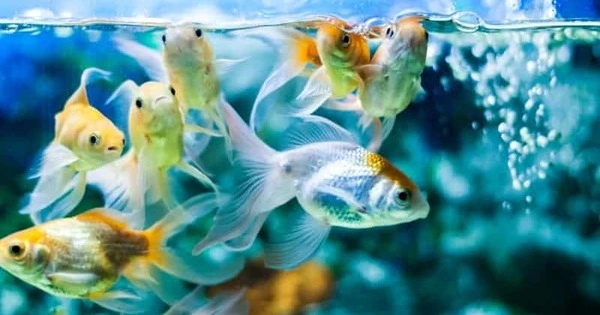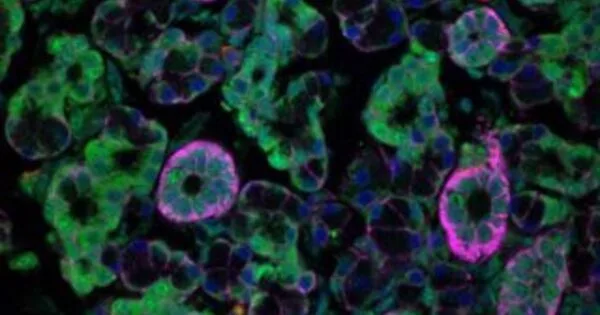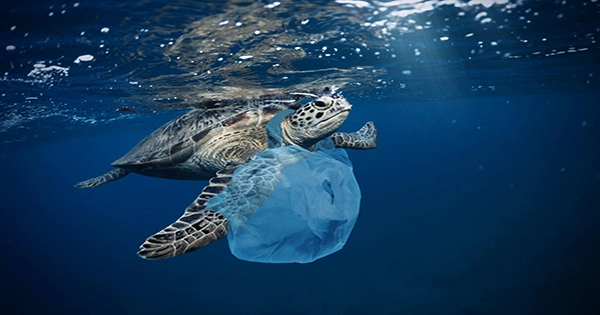Fish are subjected to large oxygen fluctuations in their aquatic environment due to the inherent properties of water, which can result in significant spatial and temporal differences in oxygen concentration. In order to maintain homeostasis and organism function in an oxygen-depleted environment, fish respond to hypoxia with a variety of behavioral, physiological, and cellular responses.
Larger fishes are more likely than smaller species to suffer from oxygen deficiency in warming water. The same holds true for fish with large cells, according to Radboud University researchers in their most recent study. Furthermore, marine fishes are less tolerant of low oxygen levels than freshwater fishes. Based on these findings, the researchers hope to predict which aquatic species will be threatened by changes in their habitat caused by global warming and human activity. The findings will appear in the journal Global Change Biology.
Falling dissolved oxygen levels are a major issue for fish and other aquatic organisms. Oxygen levels are decreasing as the water heats up due to climate change and becomes more polluted. When environmental conditions change, general biological rules can tell us which fish attributes are beneficial or detrimental. “Once we’ve identified these rules for fish,” says researcher Wilco Verberk, “we’ll be able to predict which fish species are most vulnerable to environmental change.”
The explanation most likely involves different selection pressures on freshwater fish throughout their evolutionary history. The temperature in the ocean is relatively stable, but in freshwater, the fish are frequently exposed to higher temperatures. Fluctuations in oxygen levels are also greater in rivers and lakes, for example, due to the presence of algae.
Wilco Verberk
Large and small cells
There is a heated debate among biologists about the role of oxygen in fish sensitivity to warming water. “Many oxygen hypotheses are hotly debated. The issue is that the different effects are grouped together. Some studies, for example, examine how fish respond to oxygen levels in the water without taking into account the temperature of the water or the size of the fish. As a result, the reported patterns vary” Verberk elaborates.
Verberk and colleagues have systematically separated the various effects and compiled data on tolerance to deficiency oxygen from 195 fishes to resolve this discussion. When analyzing the data, they saw that larger fishes are more sensitive to oxygen stress, but only in warm water. When the water is cold, the effect is reversed.

The researchers observed a similar effect in fish with relatively large cells. “Many people believe that all animal species have the same cell size, but even within the same species, some animals have large cells and others have small cells. Small cells have numerous advantages, especially in warm water. Small cells, for example, have a larger membrane area, which is required to absorb oxygen from their surroundings.”
Fresh water and saltwater
In addition, the researchers found differences between freshwater fish and marine fish. “Far too often, scientific studies only compare marine and terrestrial life. Indeed, freshwater species are sometimes lumped with terrestrial species. It is a missed opportunity because taking these differences into account can greatly increase our understanding of the environmental impacts of climate change.”
In response to decreasing dissolved oxygen levels in the environment, fish swim to the surface of the water column and ventilate at the top layer of the water, where the dissolved oxygen levels are relatively higher, a behavior known as aquatic surface respiration (ASR). Because oxygen diffuses into water from the air, the top layer of water in contact with the air contains more oxygen. This is only true in still water; in moving water, all layers are mixed together, and oxygen levels are consistent throughout the water column.
According to Verberk and colleagues’ research, freshwater fish appear to be more tolerant of oxygen-depleted water than marine fish. “The explanation most likely involves different selection pressures on freshwater fish throughout their evolutionary history. The temperature in the ocean is relatively stable, but in fresh water, the fish are frequently exposed to higher temperatures. Fluctuations in oxygen levels are also greater in rivers and lakes, for example, due to the presence of algae.”
















